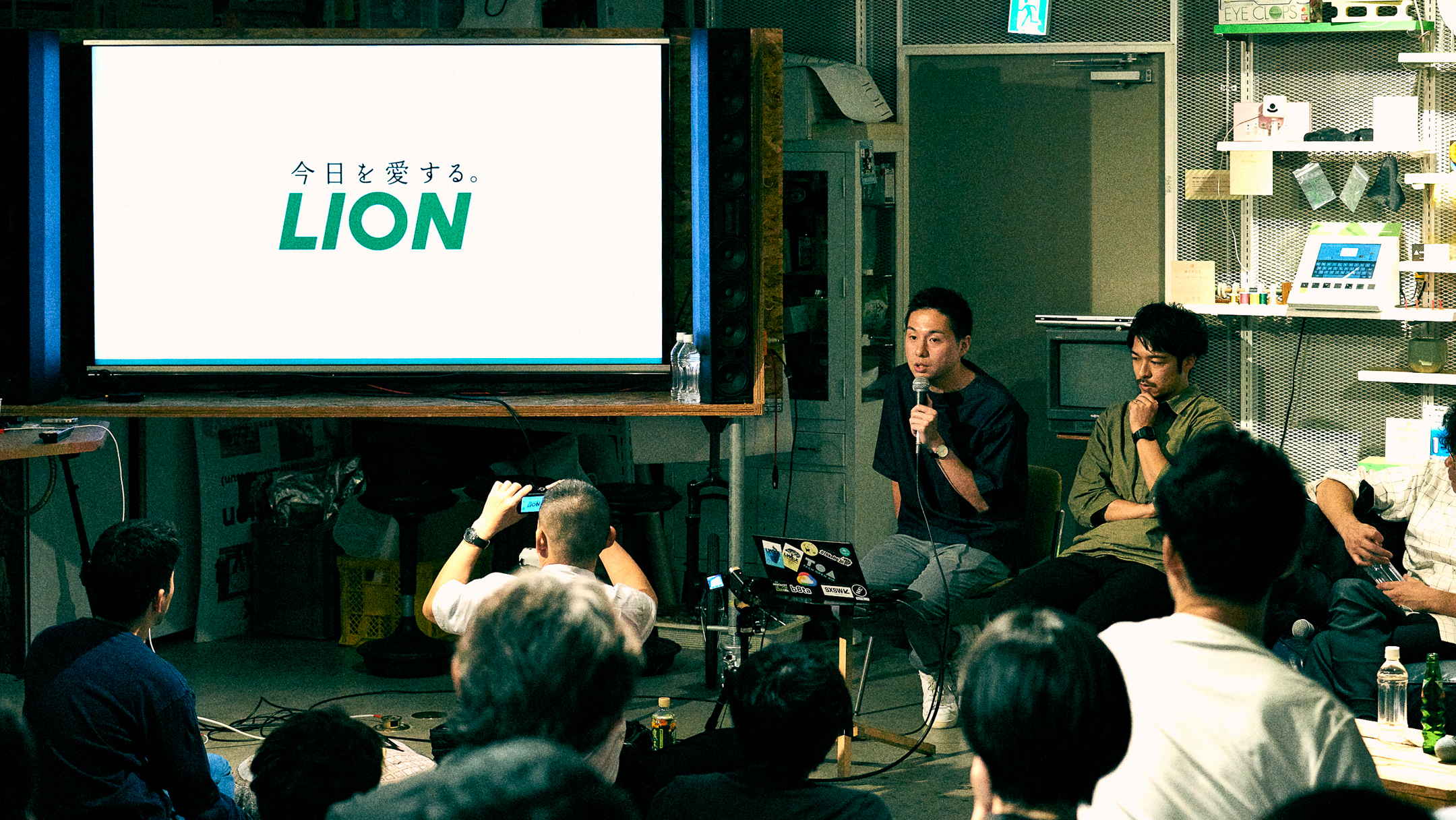The YouFab Global Creative Awards 2018 (hereafter, YouFab) began back in 2012 and are now in their 7th year. On September 14th, 2018, we held a special kickoff event to get things going.
This year on the stage, we had the head of the Judging Committee, Editor Kei Wakabayashi and SFC Social Fabrication Lab representative Hiroya Tanaka. This year’s YouFab theme, “Polémica!!” held an especially deep meaning. The ever advancing Fab is now looking at new questions posed by society. The first talk session provided a chance to discuss the unfolding outlook connecting the past and the future of Fab.
The second talk session featured Shouhei Fujimura and others from the Lion Corporation Innovation Lab. Mr. Fujimura spoke about the background for establishing the special “Lion Award” this year, and also about how the award hopes to capture how businesses and creators “merge” together.
Writer: Risa Shoji
Photography: Aya Suzuki
English Editor: Kelsie Stewart
Redefining Fab as a "Tool for Rebelling Against Authority"
This year, as YouFab takes its first step into the next stage of its evolution, we welcome in former “WIRED JAPAN” Chief Editor Mr. Wakabayashi as the new head of the Judging Committee. With this new system as a backdrop, a more provocative title was selected for this year’s YouFab theme.
The new theme “Polémica!!” is a Spanish word meaning “controversy”. Mr. Wakabayashi was excited as he explained, “Now that Fab has become a part of society, we want to return to the original meaning of Fab, and once again ask questions about its value. We selected Polémica as the theme with the goal of making YouFab an opportunity to ask these kind of questions.”
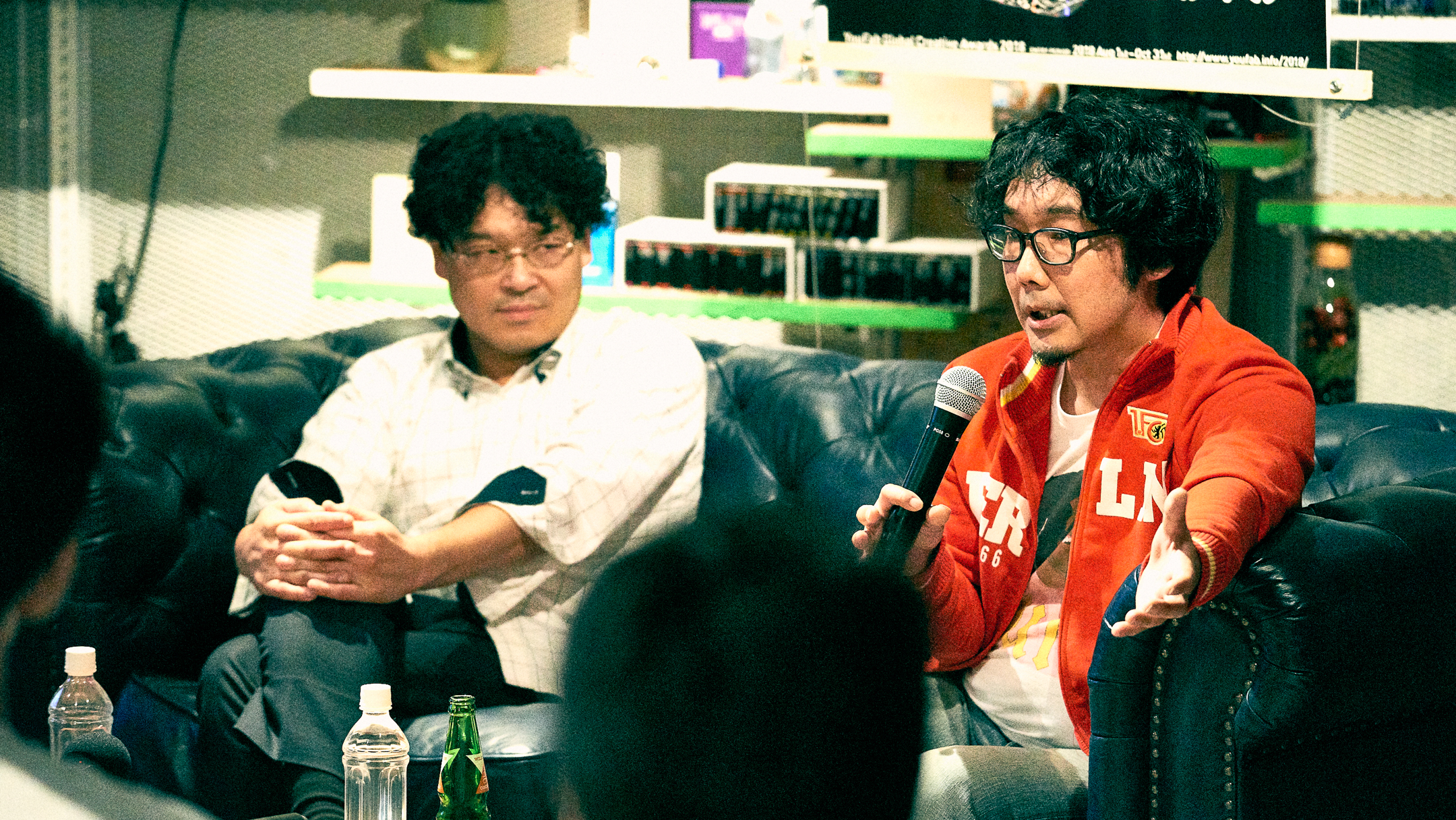
“Right now in Japan, it seems like everybody is in a state of ‘searching for answers.’ Everybody thinks there must be answers out there that will allow us to live for another 100 years in peace. That is why when Fab appeared on the worldwide stage, everybody thought the ‘answer’ had been found. But the truth is that the world hasn’t changed all that much. That is why we thought that it might be best to start questioning the current status of Fab by asking, ‘Why?’ “
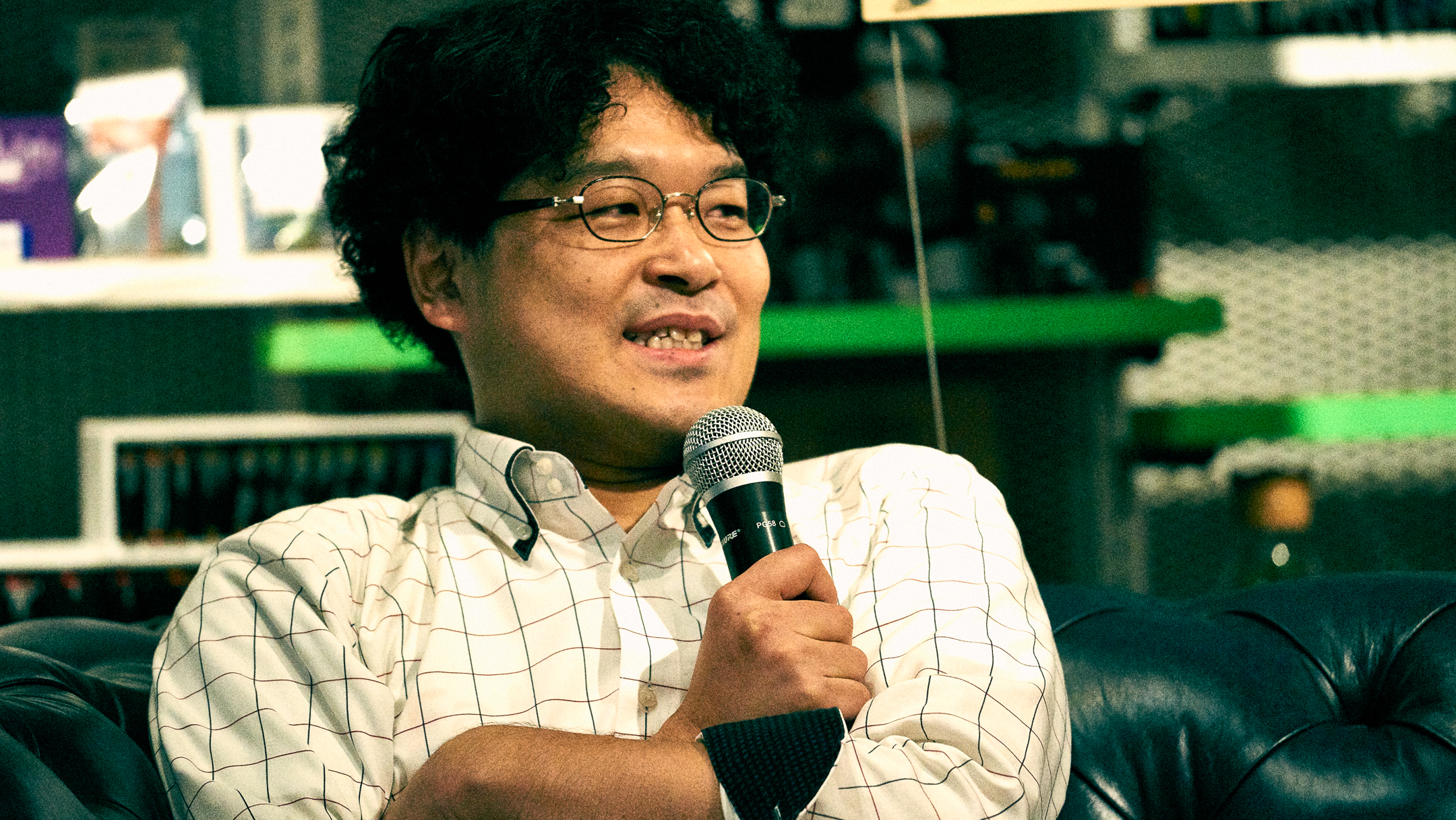
On the other hand, Mr. Tanaka, who had been the head of the Judging Committee for the past 3 years, walking in tandem with YouFab for much of its history, said, “From the start, Fab had the hidden meaning of being a weapon for the ‘have-nots’ to challenge the unfairness of society.”
“There is a need for Fab to return to its roots as a tool for rebelling against the current situation that the ‘authority’ has created. That doesn’t mean using 3D printers to build guns, but rather, it means granting new power to those who previously didn’t have access to manufacturing. Fab is again providing the avenue for broadening possibilities, thus returning to its original context.”
As an example symbolizing that origin, Mr. Tanaka shared an experience he had at FabLab Sendai.
“On the 4th floor of a multipurpose building, a tattoo artist was using a UV printer to experiment, while nearby an elderly man was creating a tool to capture a wild boar. This was a coming together of daily life, the street, and technology. Looking in from the outside, it seems like an unlikely connection, but looking at from within, it seems perfectly natural. The YouFab awards are aiming to take these types of natural occurrences, and provide tools for connecting street Fab culture.”
Attempting to Eliminate the "Digital" Prefix from Fab
Mr. Tanaka expressed some doubts about the current state of Fab, where digital technology is automatically being taken as the premise. Mr. Wakabayashi followed up on Mr. Tanaka’s question by referring to the book “Community: Seeking Safety in an Insecure World” by sociologist Zygmunt Bauman.

(2017 Grand Prix "Regenerative Reliquary" Amy Karle)
“In the book, Bauman explains, without mentioning technology, how we understand changes in the world through our senses. Even removing technology from the equation in modern society, things can still be mostly described via societal movement. In other words, changes brought about by new technology occur in connection with pre-existing societal changes, and if you are only considering change made by technology itself, then it doesn’t actually change society. That is why even if you think of creating based on digital technology, it won’t give birth to anything substantial. Is there really a need to make things like jars and hairpins part of the IoT?”
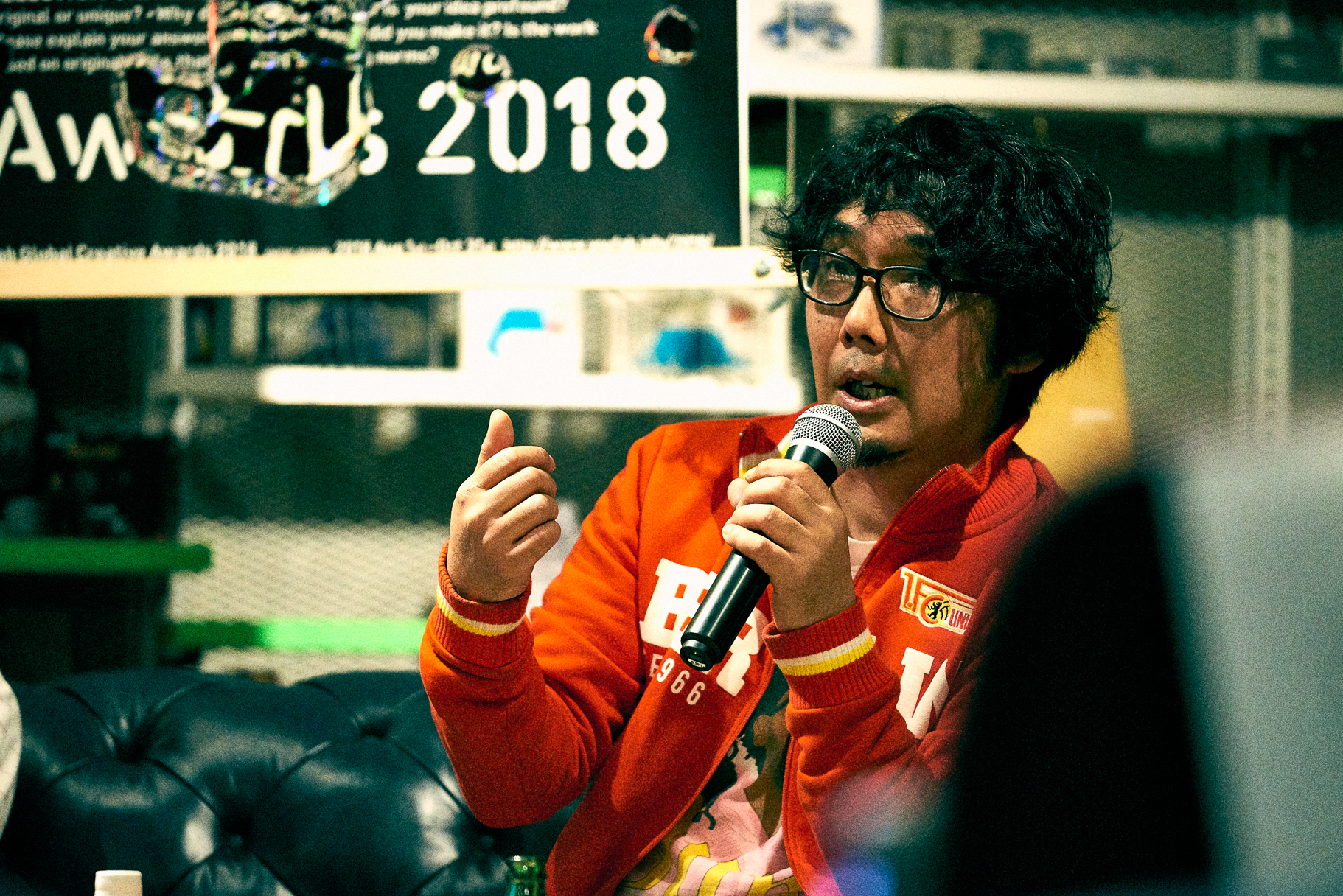
While elucidating on the “maker movement” advocated by Chris Anderson (former Chief Editor of “WIRED” in the US), Mr. Wakabayashi gave a new viewpoint on the future of Fab.
“Chris was a student during the vortex that the punk movement created by rebelling against the music industry. The spirit of punk brought about the democratization of music, and that is connected to the makers concept that Chris advocates, but with a few exceptions that was mostly all monopolized by men.”
To put it another way, men (←there is no way that everyone connected to the movements was a man) have been rebelling against society since the 1980s. Mr. Wakabayashi said that because of this, “It feels like almost all of the antitheses have already been used.”
“Actually, now the indie music scene is expanding to be almost entirely made up of women. This delayed arrival of democratization is also possible in all sorts of other areas in the future. If that happens, it might give birth to, for example, ‘a lightweight electric guitar that is easy for women to use.’ I believe that this is the type of world in which Fab can be the future we dreamed of.”
The Role of "Distribution" in Expanding Fab
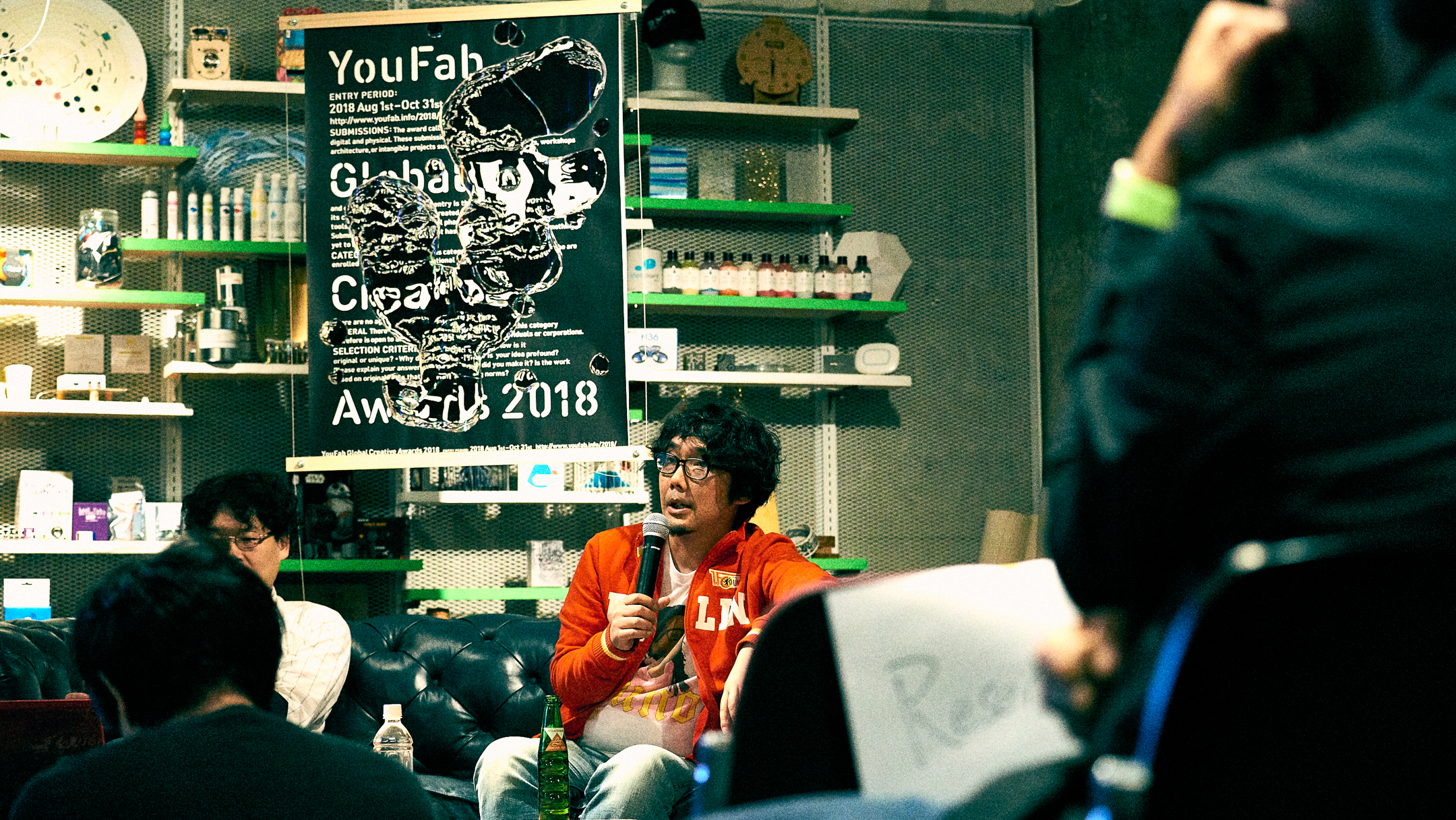
“Fab is no longer about ‘making things.’ “
That is what Mr. Tanaka said at last year’s YouFab 2017 Award Ceremony. Building on that thought, at this YouFab, he said, “We are looking forward to new works that are not bound by (physical) works, but also include performance, activism, and more. These activities will spread the new worldview of Fab.”
On top of that, Mr. Tanaka also referenced “distribution” as an important concept in the redefining of Fab. For the background on this, he spoke about the International Fab Lab Conference & Symposium held in July of this year in France.
“At the conference, the mayors for Paris and Barcelona spoke about Fab City(*) using ‘the mass distribution of almost everything’ as a key phrase. In other words, these women (both mayors are females in their 30s) are working, not via a centralized authoritarian rule but rather via distribution, toward an autonomous world around them regarding food, energy, and even education. Fab has moved past being about making things or democratization. The keyword is now ‘distribution.’ “
(*) Fab City: Fab Lab has transcended being a place for individuals to make things, and it is now a place for citizens themselves to come up with solutions to problems facing their city. This introduces a new way of thinking about city policy with everybody bringing forth new things and new systems.

Similar to how there are enormous costs and vast infrastructure requirements for distribution of physical things, people have been dependent on centralized authority, beginning with their government. However, Mr. Wakabayashi says that the distribution network of Fab is “taking the place of that.” Mr. Wakabayashi referenced philosopher Ivan Illich, advocating that, “Society should strive for conviviality (independent coexistence)” as follows.
“The conviviality that Illich spoke of is not overly dependent upon things or technology, but rather it is about how we can survive autonomously in the environment around us. I believe that the essence of Fab can be thought of in exactly that way.”
Mr. Wakabayashi also said that he would like to see conviviality as the theme of YouFab “as soon as next year.”
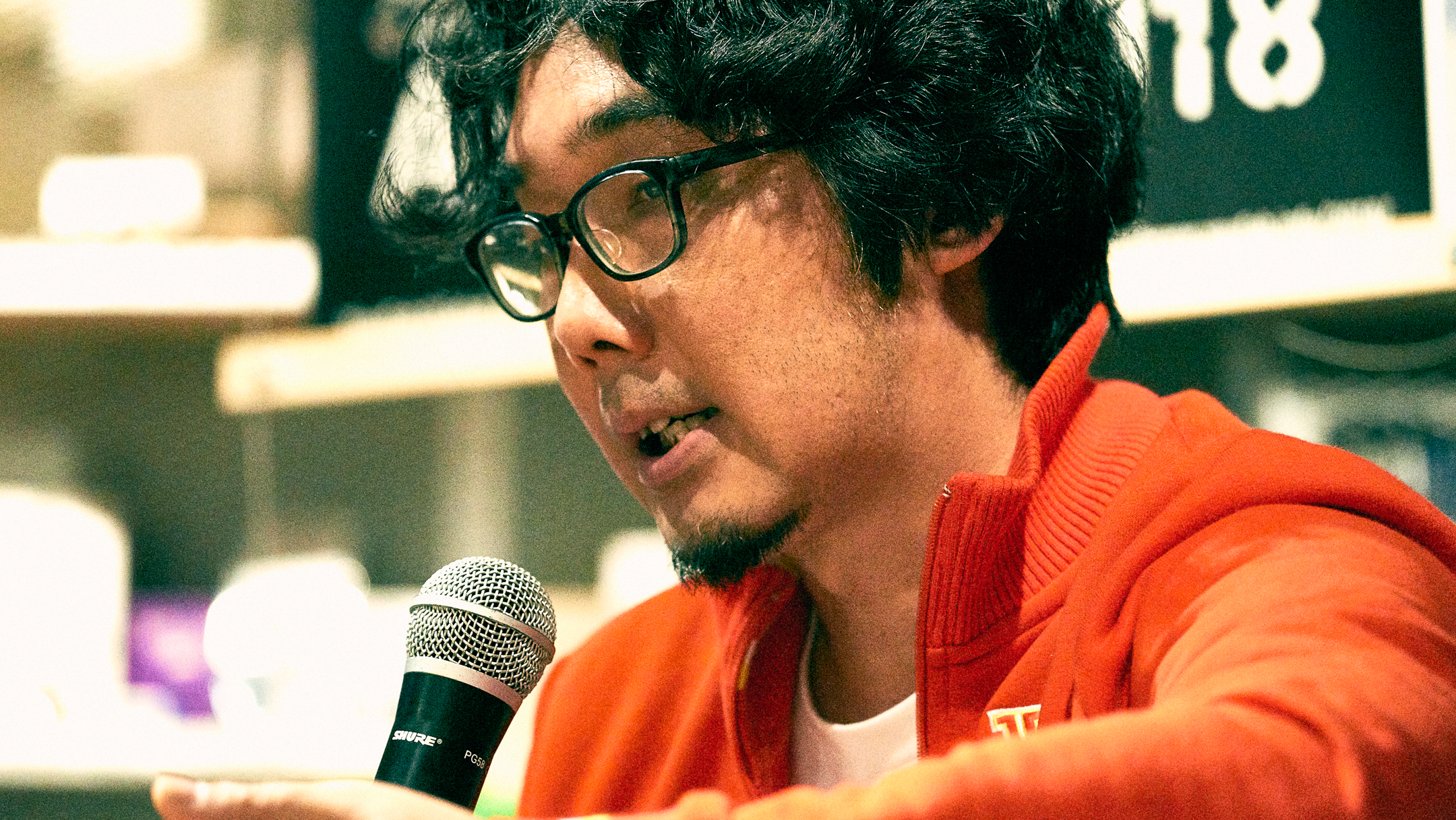
“The reason is that this year is Polémica is because we want to see the works of people who are really, really upset (haha). If society trends toward conviviality based on Fab, then what will Fab fight against? What part of society can Fab strike at? The strong ‘questions’ facing this issue will continue to be necessary in the future. For that intelligence and etiquette are unnecessary. We want to see the independent ‘Polémica’ spirit of those rebelling against society.”
YouFab is a Place for Businesses and Creators to Merge
With the passion from the discussion in the first session still heavy in the air, Fujimura Shouhei from the Lion Corporation Innovation Lab took the podium along with Mr. Yanagawa from Loftwork for the second talk session.
Mr. Fujimura spoke about the newly created special “Lion Award” by saying, “We want the vision that Lion is creating of ‘a future where work and life merge together’ to be the impetus for new viewpoints and ideas.”
Currently, we can consider the boundaries of working and living, individuals and organizations, digital and real, becoming more and more blurred. Mr. Fujimura defines a society in which all these things are connected, without boundaries, a “Merge(d)” society.
As Mr. Fujimura reflected on the Lion Corporation’s strategy for making new goods, he remarks that, “The main source of new ideas has become scenes of normal life at home.”
“Now is the time to take working and living and combine them to redefine how we make things. One attempt at that is my team working to redefine the ‘home.’ With YouFab, we are searching, together with all creators, for updates that don’t stop at the surface but rather get to the core of what it means to make things.”
Now, with the outline of the home blurring in the same way as the boundaries between work and life, we need to once again ask questions about the relationships between working people, companies, and consumers.
Indeed, Mr. Wakabayashi pointed out, “As society changes, businesses are losing the educational ability to encourage people to grow.”
“That’s why it’s desirable for businesses to transcend the organizational framework and move to an open system using awards where they can ‘cooperate’ with individuals.”
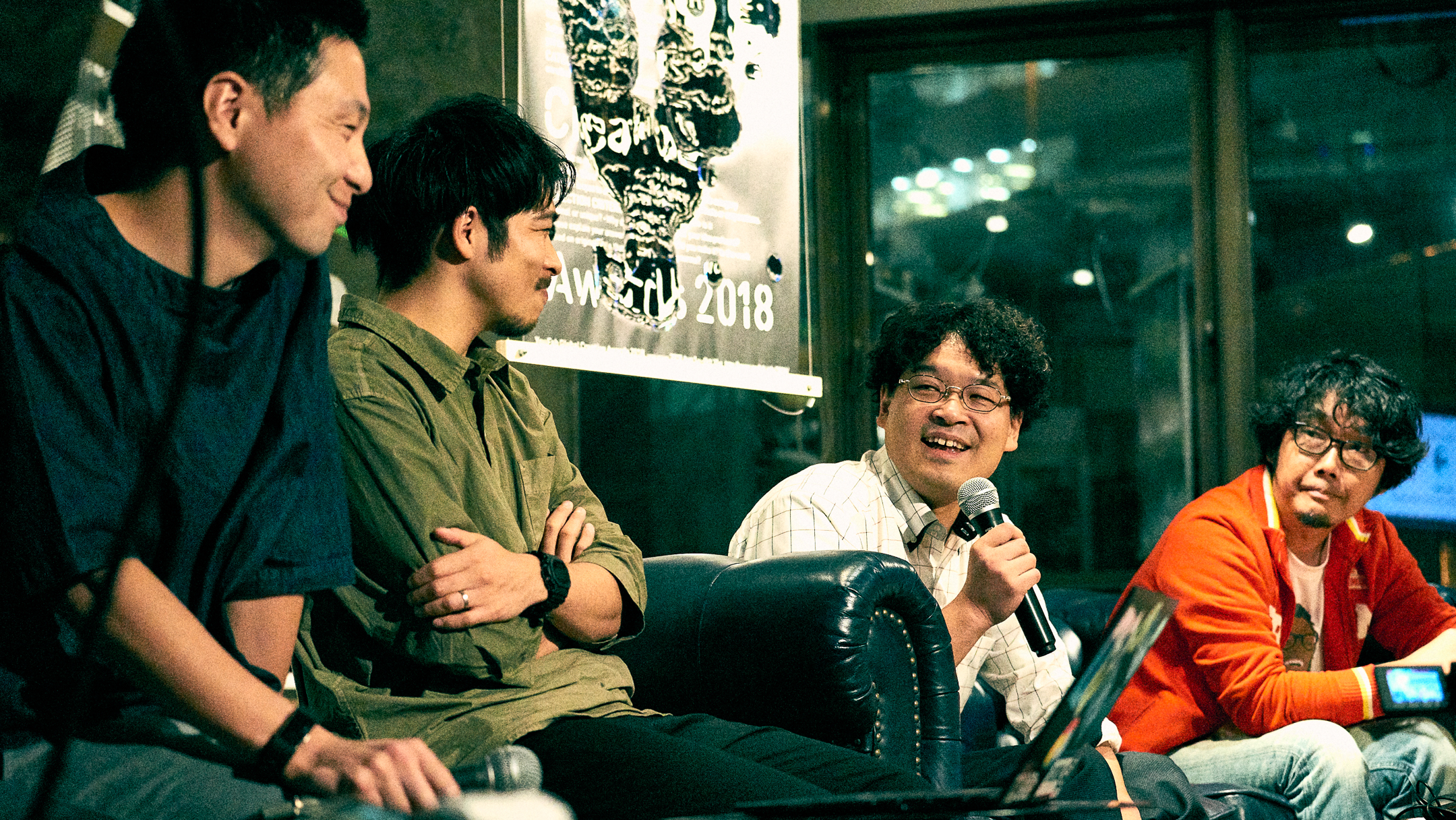
Mr. Tanaka expanded on this by saying that our contemporary situation can be considered “the future that was foreseen.”
“Women continuing to work while raising children, people working at home via side jobs and freelance work, these concepts have been in place going way back. The only difference now is that we can now see what we couldn’t see before because we’ve passed a certain threshold. The future is always contained in the present, in which we live.”
Lion has been operating for over 120 years since it was founded in 1891. During that time, their sense of values regarding families and how people live has changed a lot. Now, it is not a stretch to say that in many cases a “home” is no more than a number of people. In this era, how can we really redefine what a “home” is?
Mr. Wakabayashi and Mr. Tanaka then raised the bold suggestion of, “considering what would happen if the idea of a home were completely eliminated.”
“Even if the so-called “home package” were to become unnecessary, there would still be people who wanted to brush their teeth. In that case, you could just have a distribution system for toothbrushes and toothpaste throughout the city. These kinds of drastic ideas are desirable for private businesses; ideas that break free from the framework of modern society.” (Wakabayashi)
As the talk unfolded, it became centered around the incoming and outgoing heads of the YouFab Judging Committee, featuring pointed questions about making things in Japan and the state of Fab. The talk concluded with a sense of anticipation for the award winners being left behind. In this day in age, where change comes so quickly, there is no such thing as an absolute truth. On this night, we were reminded that it is not an “answer,” that we need, but “to continue to ask questions in a world without answers.”












